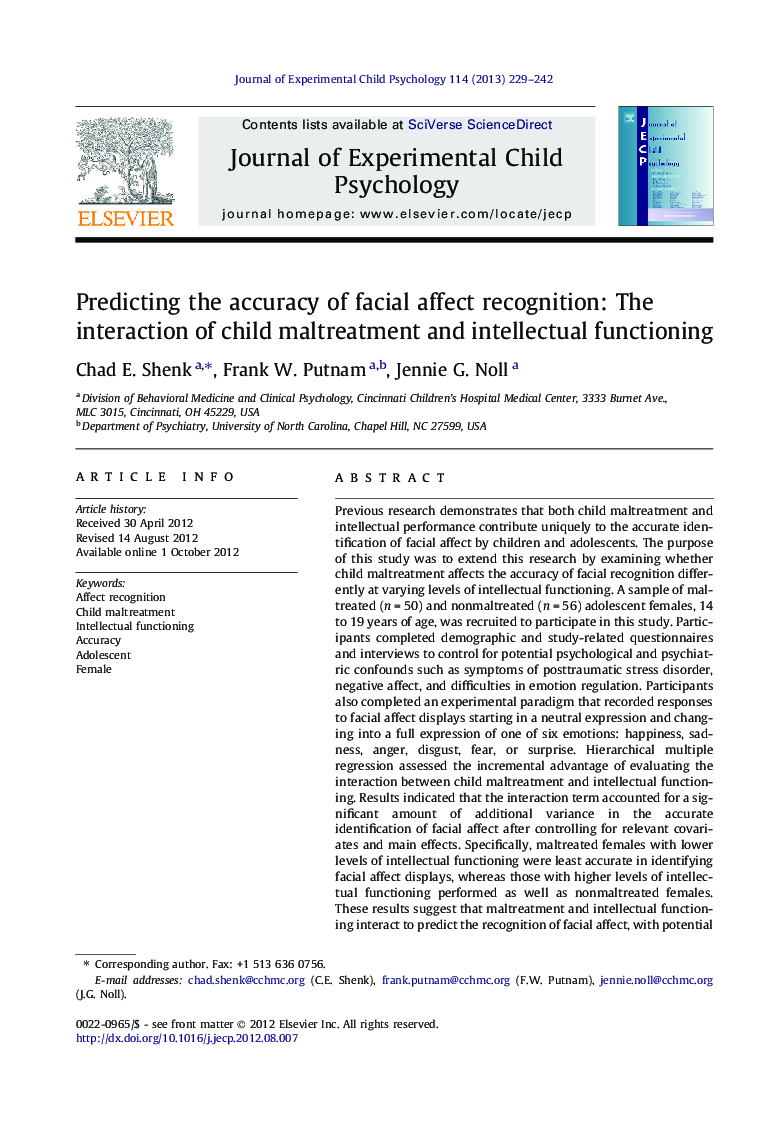| کد مقاله | کد نشریه | سال انتشار | مقاله انگلیسی | نسخه تمام متن |
|---|---|---|---|---|
| 918306 | 919471 | 2013 | 14 صفحه PDF | دانلود رایگان |

Previous research demonstrates that both child maltreatment and intellectual performance contribute uniquely to the accurate identification of facial affect by children and adolescents. The purpose of this study was to extend this research by examining whether child maltreatment affects the accuracy of facial recognition differently at varying levels of intellectual functioning. A sample of maltreated (n = 50) and nonmaltreated (n = 56) adolescent females, 14 to 19 years of age, was recruited to participate in this study. Participants completed demographic and study-related questionnaires and interviews to control for potential psychological and psychiatric confounds such as symptoms of posttraumatic stress disorder, negative affect, and difficulties in emotion regulation. Participants also completed an experimental paradigm that recorded responses to facial affect displays starting in a neutral expression and changing into a full expression of one of six emotions: happiness, sadness, anger, disgust, fear, or surprise. Hierarchical multiple regression assessed the incremental advantage of evaluating the interaction between child maltreatment and intellectual functioning. Results indicated that the interaction term accounted for a significant amount of additional variance in the accurate identification of facial affect after controlling for relevant covariates and main effects. Specifically, maltreated females with lower levels of intellectual functioning were least accurate in identifying facial affect displays, whereas those with higher levels of intellectual functioning performed as well as nonmaltreated females. These results suggest that maltreatment and intellectual functioning interact to predict the recognition of facial affect, with potential long-term consequences for the interpersonal functioning of maltreated females.
► Predict the accuracy of responses to facial affect displays.
► Sampled maltreated and non-maltreated adolescent females.
► Tested the interaction between child maltreatment and intellectual functioning.
► Found the interaction significantly predicted accuracy scores.
► Discuss implications for emotional and interpersonal development.
Journal: Journal of Experimental Child Psychology - Volume 114, Issue 2, February 2013, Pages 229–242